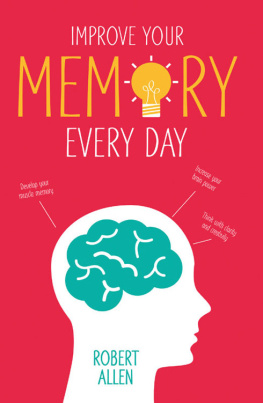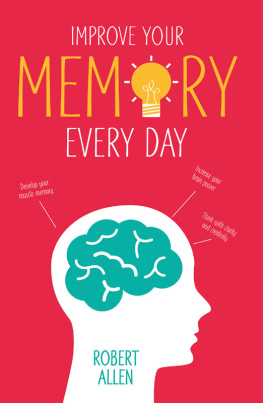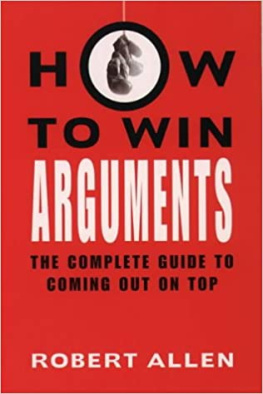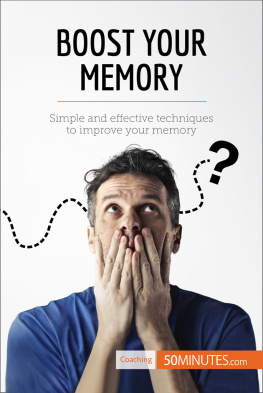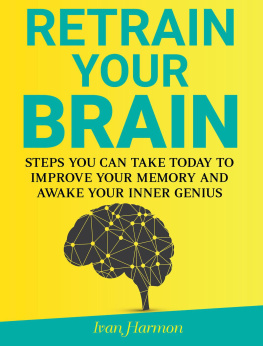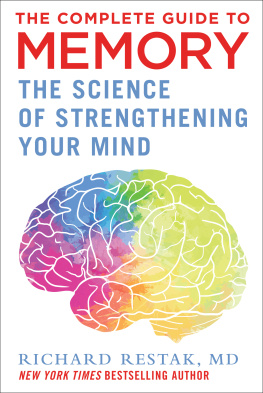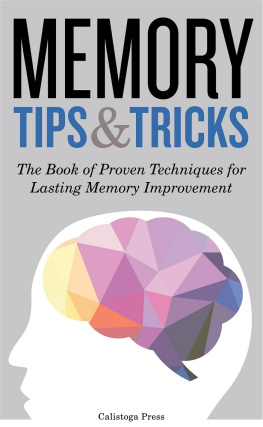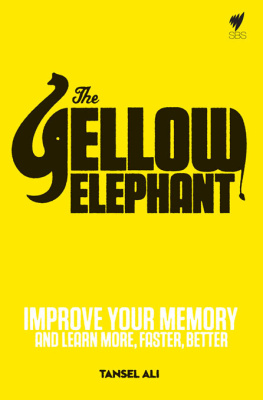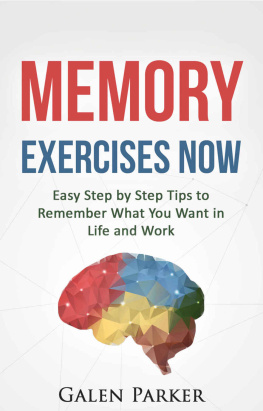

Contents
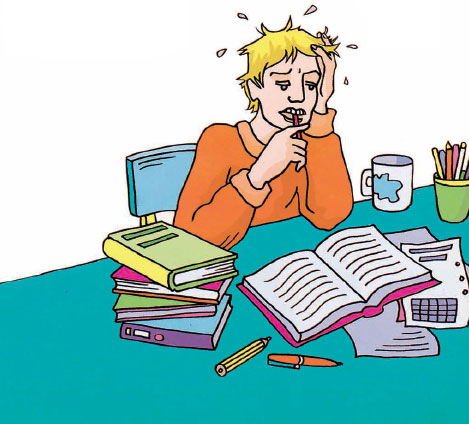
Introduction: thanks for the memory
Compulsory introduction this means YOU!
Memory is like a muscle the more you work it, the stronger it gets.
Most introductions just fill up a bit of space at the front of the book. This one tells you important stuff about memory, how to improve it and how this book works. So read it. Please.
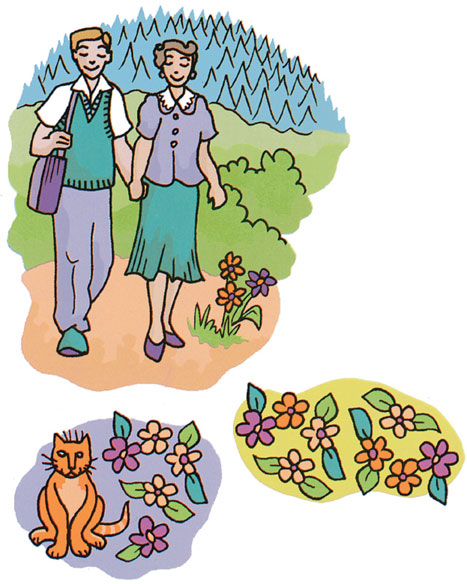
My aim is simple: to give you a powerful memory in the shortest time possible. The good news? You can make significant improvements to your memory in as little as a day. You may think that claim sounds overconfident or even fraudulent but its the truth. There are a few simple tricks that you can learn today that will immediately improve your memory greatly.
What is memory?
Memory may seem like a handy tool that helps you find where you left your car keys but, if you think just a little deeper, it is far more important than that.
Memory is who you are
The fact that from moment to moment you have a stable sense of identity and that, as far as you are aware, the person who went to bed last night is the same person who woke up in the same bed this morning, is what allows you to be a person. Without memory, this would simply not be possible. This applies not just to individuals but to whole societies. Because we remember, we are able to hold opinions about other people, places, things, events. Imagine what life would be like without this faculty!
As we go through life we accumulate more and more memories. We call this experience and it is very valuable. It means that we often dont have to solve a problem or guess what is going to happen next because, thanks to experience, we have been there many times before and know just how things are likely to pan out. When they were little, my children were convinced that I had some magic power that enabled me to predict what would happen next in a TV programme. It didnt occur to them that I had seen so many similar shows in the past that there was little room for the programme makers to fool me. Experience is also the reason why young people, whose intelligence is quick and active, are often out-thought by older people. The oldies may think more slowly but, for much of the time, they dont have to think at all because their experience tells them whats likely to be the answer. Youngsters score better where the problem is of a type not seen before. Which is one reason why kids outshine their elders when it comes to new technology.
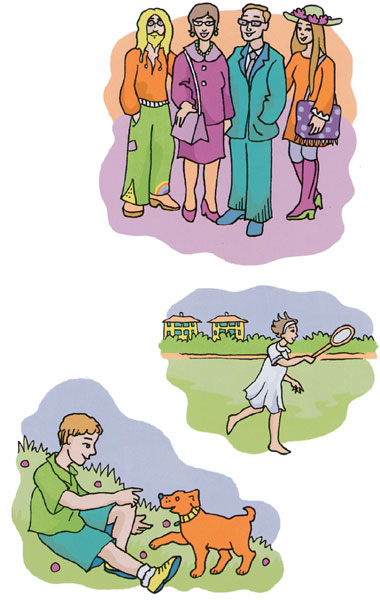
Remembering Rosebud
Memory is absolutely NOT a computer-style record of the past. It is quirky in the extreme. We often remember things for no obvious reason and forget things we would really like to remember. Do you recall Rosebud in the movie Citizen Kane ? Why, of all the things he could have said, did Kane die with the word Rosebud on his lips? That, of course, is the puzzle of the entire film and even though we finally discover that it was the name of the toboggan he owned as a kid, there are endless arguments over why he said it as he lay dying.
One of the reasons memory is so valuable is precisely because it is not mechanical. Our minds work to improve our memories. Without any conscious help from us, they add a gloss to our recollections. They can also blot out memories that are so unpalatable that the mind would rather not recall them at all. But memory can do so much more than this. It can produce, at just the right moment, a piece of information you had long forgotten you possessed. If you have ever worked on a creative project you will know only too well how your memory can throw up, quite unbidden, the most amazing treasures that you didnt know you still owned. So, far from being a cold, dead record of things past, the memory is like an Aladdins cave crammed with the most amazing treasures.
If you start today and practise, practise, practise, soon your memory will be as retentive as flypaper (though what gets stuck to it will, with luck, be more useful).
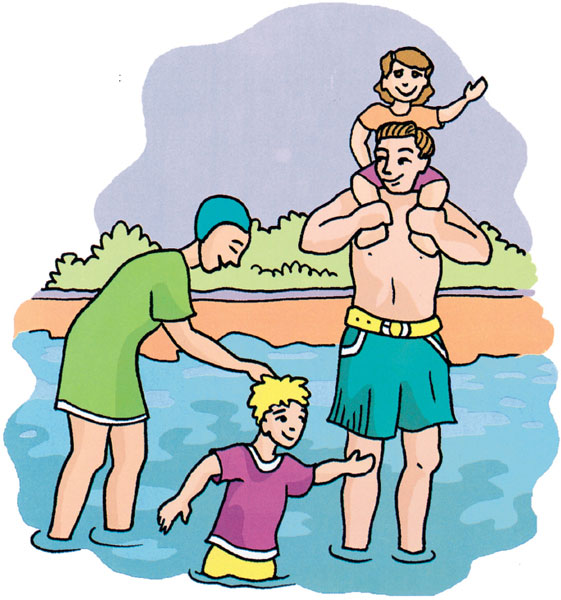

We can never have free access to the cave of our memories but we can, with just a little practice, train ourselves to find things that we have deposited in the cave. This is a very valuable skill and it is one that you can acquire with very little effort if you just work on the exercises in this book.
Memory is a crazy woman that hoards coloured rags and throws away food.
Austin OMalley
It doesnt matter who my father was; it matters who I remember he was.
Anne Sexton
Nothing is more responsible for the good old days than a bad memory.
Robert Benchley
Memory Techniques
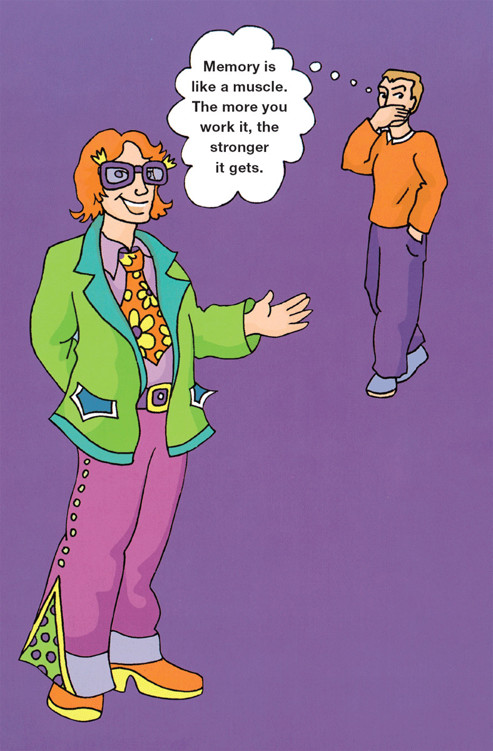
The first part of our course is devoted to finding out just how good your memory is now, and then teaching you how to improve it. You can learn a lot in a very short time, By the end of just one day of study, you will have at your disposal a variety of powerful memory tools that will last you a lifetime, But dont stop there! The more you use your new-found powers, the stronger they will become, Eventually, with regular practice, you will have a foolproof memory that will serve you well in all areas of your life.
You can learn a lot in a very short time. Become more efficient and professional. You will have at your disposal a variety of powerful memory tools.
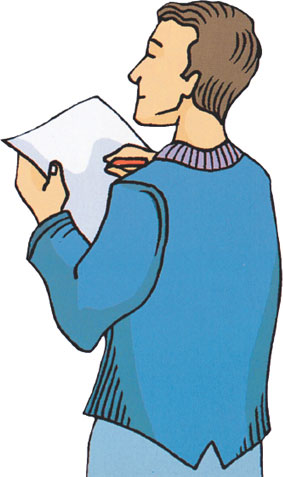
How do you learn?
There are three ways in which we learn: looking, listening and doing. Of these, most of us have a favourite that we tend to rely on, a second method we use as a back-up, and a third method that we feel less comfortable with. Some lucky people can use all three styles effectively and some unlucky people are completely deprived of one or more of them (for example, blind students can gain nothing from visual learning). The following test will tell you how you rate on each learning style. See What does it all mean? (opposite), for a description of your personal learning style.
At a lecture, you may learn in several ways. Which is your favourite?
a ) Listening to the lecturer. b ) Copying down notes from a whiteboard. c ) Carrying out practical tasks based on what you learned in the lecture.
When you go to a movie, what do you remember best afterwards?
a ) The dialogue. b ) The action sequences. c ) The things you did: driving to the cinema, buying tickets and getting popcorn.
How would you learn to fix a flat bicycle tyre?
a ) Get a friend to describe how to do it. b ) Buy a repair kit and read the instructions. c ) Get to work with a spanner and figure it out for yourself.
Next page
